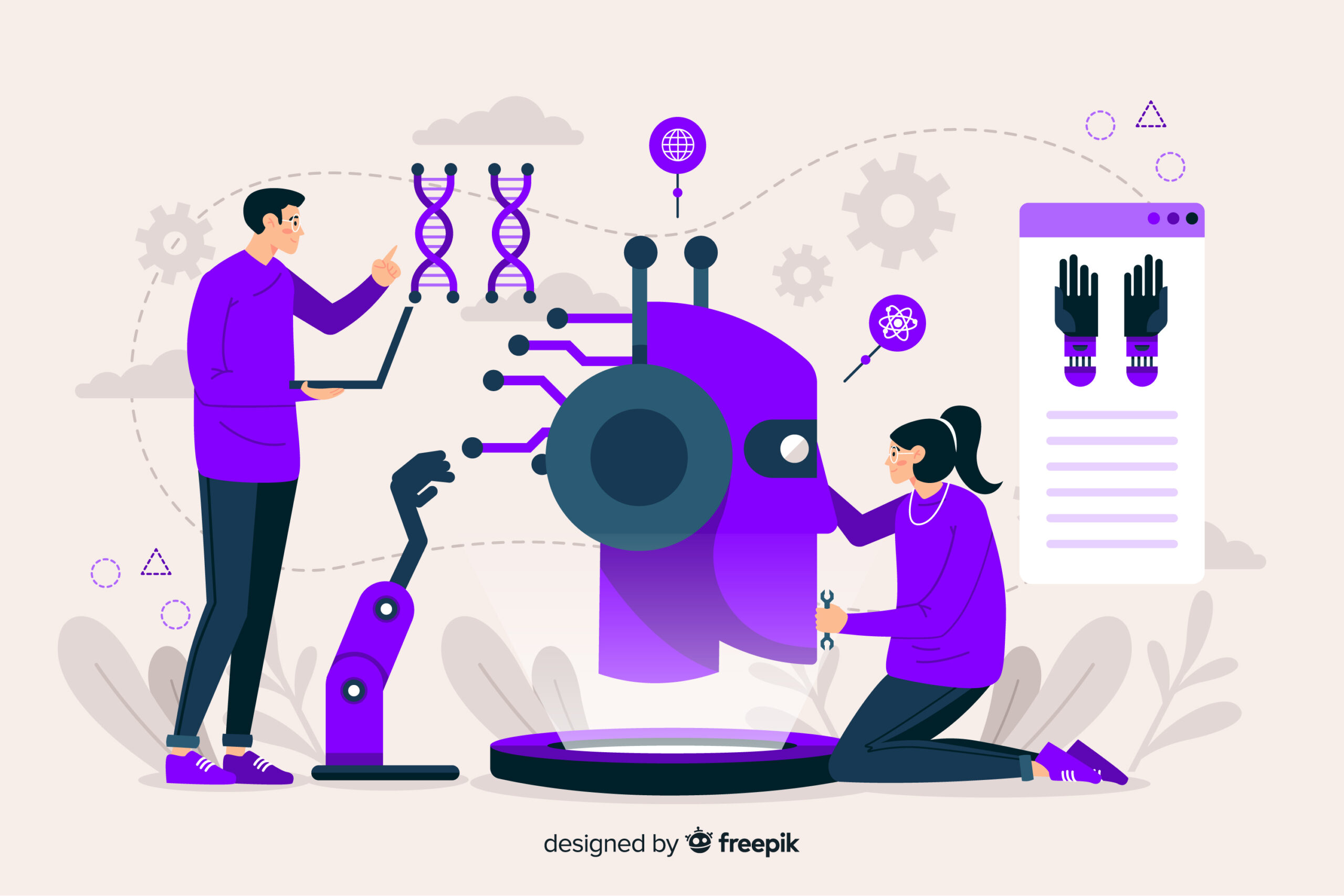Understanding Digital Transformation
Digital transformation is more than adopting new technologies; it’s a holistic reimagining of how businesses operate, interact with customers, and deliver value. It involves integrating digital technologies into every aspect of your business, fundamentally changing how you operate and deliver value to customers.
Why Does Digital Transformation Matter?
Enhanced Efficiency: Streamlining processes through digital tools enhances operational efficiency, reducing manual errors and saving time.
Improved Customer Experience: Digital transformation allows businesses to offer personalized and seamless experiences, meeting modern customer expectations.
Data-Driven Decision Making: Leveraging data analytics empowers businesses to make informed decisions, gaining a competitive edge.
Adaptability to Change: In a dynamic business environment, digital transformation enables agility, making it easier to adapt to market changes.
Digitraly: Your Ally in the Journey of Transformation
Strategic Planning: Digitraly starts by understanding your business goals, helping you create a comprehensive digital strategy aligned with your objectives.
Technology Integration: From cloud computing to AI and IoT, Digitraly ensures seamless integration of cutting-edge technologies tailored to your business needs.
Data Analytics: Unlock the power of data with strong analytics solutions. Digitraly helps you derive actionable insights for informed decision-making.
Cybersecurity Solutions: Safeguard your digital assets with state-of-the-art cybersecurity measures implemented by Digitraly’s experts.
Change Management: Digital transformation involves cultural shifts. Digitraly supports your team through change management processes, ensuring a smooth transition.
Impact of Cloud Technologies on Digital Transformation:
Whether you concur or not, traditional businesses are becoming obsolete with the emergence of technologies like Artificial Intelligence, Big Data, IoT, and ML. The rapidly evolving customer needs are compelling enterprises to adapt and formulate strategies where they can precisely tailor offers to a specific segment rather than deploying broad offerings to an uninterested audience. However, achieving this level of marketing precision requires robust computing power.
Cloud technology has emerged as a primary disruptive force for enterprises to enhance insights-based innovation, drive digital transformation, and maintain a competitive edge. It has proven to be a core facilitator for business agility, automation, and cost optimization.
According to research by Markets and Markets, the global cloud computing market is expected to grow from USD 445.3 billion in 2021 to USD 947.3 billion by 2026, with a compound annual growth rate (CAGR) of 16.3% during the forecast period.
Why is the cloud essential for digital transformation?
The use of remote servers over a network, known as cloud computing, provides functionalities like storage, processing, security, and analytics. For digital disruption to occur, enterprises need to modernize their conventional business processes by leveraging technologies like AI, IoT, Chatbots, AR, ML, etc. These technologies require substantial computing power, storage, and IT infrastructure, all of which are provided by cloud computing based on individual enterprise requirements.
The cloud fuels innovation by providing a compatible set of APIs for developers, enabling firms to reuse enterprise data, offering easy and scalable low-code platforms, providing a powerful tech backbone for highly sophisticated analytics platforms, offering Big Data repositories for massive data collection, and providing a tight privacy and security framework.
To be known:
According to Gartner, by 2024, more than 45% of IT spending on various components will shift from traditional solutions to the cloud. Another finding by Gartner suggests that by 2025, more than 55% of large organizations will implement a cloud-only strategy.
How the Cloud Augments Digital Transformation?
Digital transformation calls for creating new business models to stay relevant and thrive in a dynamic ecosystem. The cloud is the catalyst that drives innovation. When businesses start to adapt their processes to a digital environment, they require scalability, cost and, elasticity, agility, and work efficiency.
1. Agility:
To retain market share and a competitive edge, enterprises must constantly reinvent their business models. The cloud offers essential infrastructure, platforms, and computing abilities that support firms in staying agile and ready to embrace change.
2. Reduced Operational Cost:
Cloud offers a scalable service model where enterprises pay only for resources used, saving costs associated with purchasing and managing IT infrastructure. Cloud servers also decrease the need for IT support staff and continual server environment refreshes.
3. Security:
Migrating a database to the cloud enhances protection from threats like data breaches, disasters, and system shutdowns, allowing for the creation of multiple backups.
4. Efficiency:
Cloud computing maximizes efficiency with minimal costs, bringing agility and flexibility without investing in different IT infrastructures. Hence, this enables enterprises to respond to customer needs quickly, eliminating IT systems overload or over-provisioning issues.
5. Scalability:
Cloud computing provides scalability, allowing enterprises to use resources and bandwidth as per specific needs at a particular time. Enterprises pay only for the capacity they use, with the flexibility to reduce or increase resources as needed.
6. Enhanced Collaboration:
Efficient collaboration and improved productivity are ensured by cloud computing, enabling businesses to access, retrieve, and process information from anywhere. Video communication is also simplified, allowing companies to monitor, manage, and schedule meetings directly onto the system.
7. Faster Prototyping:
The cloud facilitates the efficient execution of ideating, innovating, testing, and deploying, supporting the entire process without the need for complicated resources and infrastructure. Enterprises can test and deploy different applications on different platforms during experimentation.
Most enterprises across various industries have adopted an iterative approach to cloud transitioning. Data and analytics play a prominent role in cloud migration:
- Banks and Financial Services: Managing customer engagement, credit supply, customer behavioral analysis, portfolio management, debt recovery, and collections.
- Insurance Sector: AI-driven processes for customer onboarding, claims, and policy management, AI-led underwriting, pricing, and reserving.
- Manufacturing Sector: Use of AI/ML in supply chain optimization, demand planning, and new product forecasting.
- Energy & Utility: Moving meter readings, fault detection, and predictive maintenance use cases to the cloud.
- Public Sector: Deploying AI and analytics on the cloud for managing customer grievances, sentiment analysis, and enhancing transparency in government functioning.
Enterprises leverage the constant advances in data science combined with the agility and flexibility of moving applications to the cloud to create an API-based consumption ecosystem. However, this agility brings challenges regarding the ethical and societal implications of data usage and the sacrosanct nature of data privacy in the cloud.
Leap with Digitraly—transform your business, unwrap new possibilities, and thrive in the digital era. Your future begins with Digitraly!
Contact Digitraly to embark on your digital transformation journey today.



